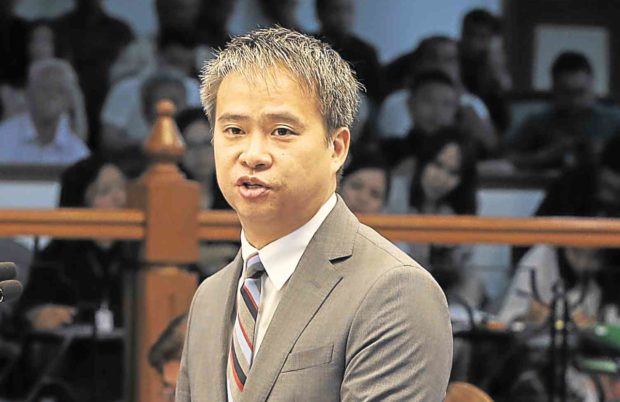‘Pogos less beneficial to economy’
Offshore gaming operations in the Philippines may do more harm than good to the country’s economy.
Sen. Joel Villanueva issued this warning on Friday as he called out the Philippine Amusement and Gaming Corp. (Pagcor) for the apparent lack of regulation on Philippine offshore gaming operations (Pogos).
A lot of stress
In a statement, Villanueva said the new industry is “causing a lot of stress in the real estate market, to the detriment of Filipino businesses and workers renting in urban areas to be near their workplaces.”
He pointed out that “while analysts hedge their bets in the growing offshore gaming operations sector, it is actually less beneficial to the domestic economy.”
“With the way developments in the industry are unfolding, we fear that we are becoming the sin city of China with very little benefit to Filipinos and our economy,” the senator said.
Villanueva is the chair of the Senate labor committee that investigated the influx of illegal foreign workers in the 17th Congress.
He made the remarks after an interagency task force inked a memorandum circular that expanded the guidelines and regulations governing foreign workers.
Closer scrutiny
The memorandum circular adopted several recommendations from the Senate inquiry, such as requiring foreign workers to get a tax identification number and the creation of an interagency database of foreign workers.
However, Villanueva pointed out that the new industry still needed closer scrutiny and monitoring, which the Pagcor should have done.
Rising rent prices
He intends to file a resolution in the 18th Congress to closely examine the regulation of Pogos.
“Pagcor’s work begins when it issues Pogos the necessary licenses to operate. They should do a better job in regulating offshore gaming firms, just as what they do with conventional gaming establishments such as casinos,” he said.
Villanueva also warned that office lease prices were on the rise due to the increasing demand from Pogos.
He said the same was true with residential rent prices with condominium rental spiking upward, making it more expensive for Filipinos to rent units near their places of work or in business districts.
He cited several reports of Filipino office employees choosing not to renew their rents in Makati City, Taguig City and Pasay City because their rent had doubled or tripled due to demand from foreign workers.
“One report we received came from an office worker who paid P25,000 for a condominium unit in Pasay. She did not renew her contract because the unit owner planned to raise rent to P60,000,” Villanueva said.
He added that the sector also did not create jobs for Filipinos because it hired primarily Chinese workers, as the industry required native Chinese speakers to cater to clients in China.
Illegal activities
Villanueva said the industry was also prone to illegal activities, noting that it took three years before the government began collecting taxes from the said sector.
“We are already set back at least P60 billion in foregone revenue,” he said.
“What worries me is if we can’t even tax them properly, how can we assure the public that these Pogos are not being used for illegal activities like money laundering?” Villanueva said as he urged the Anti-Money Laundering Council to closely monitor the flow of money in the sector.


